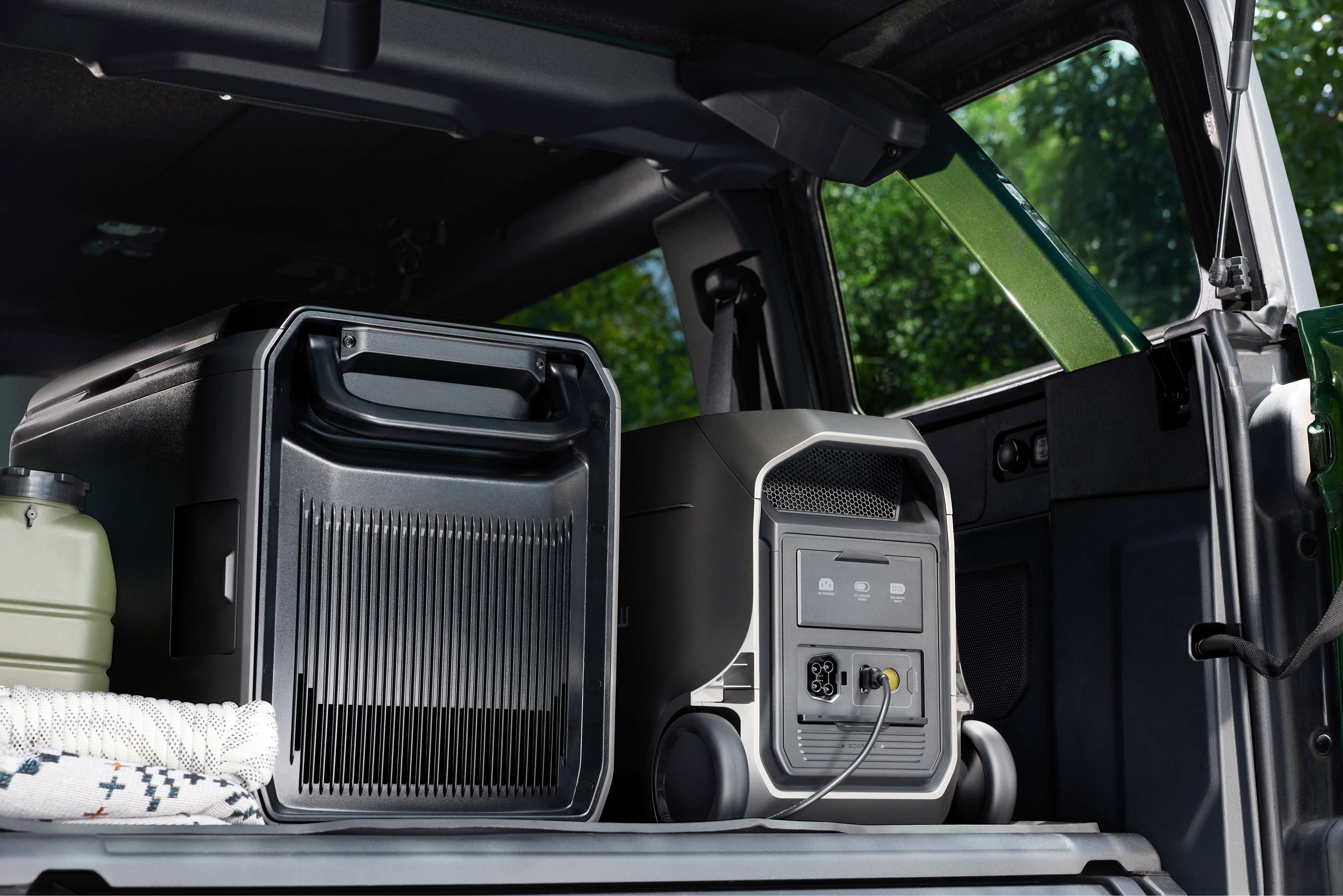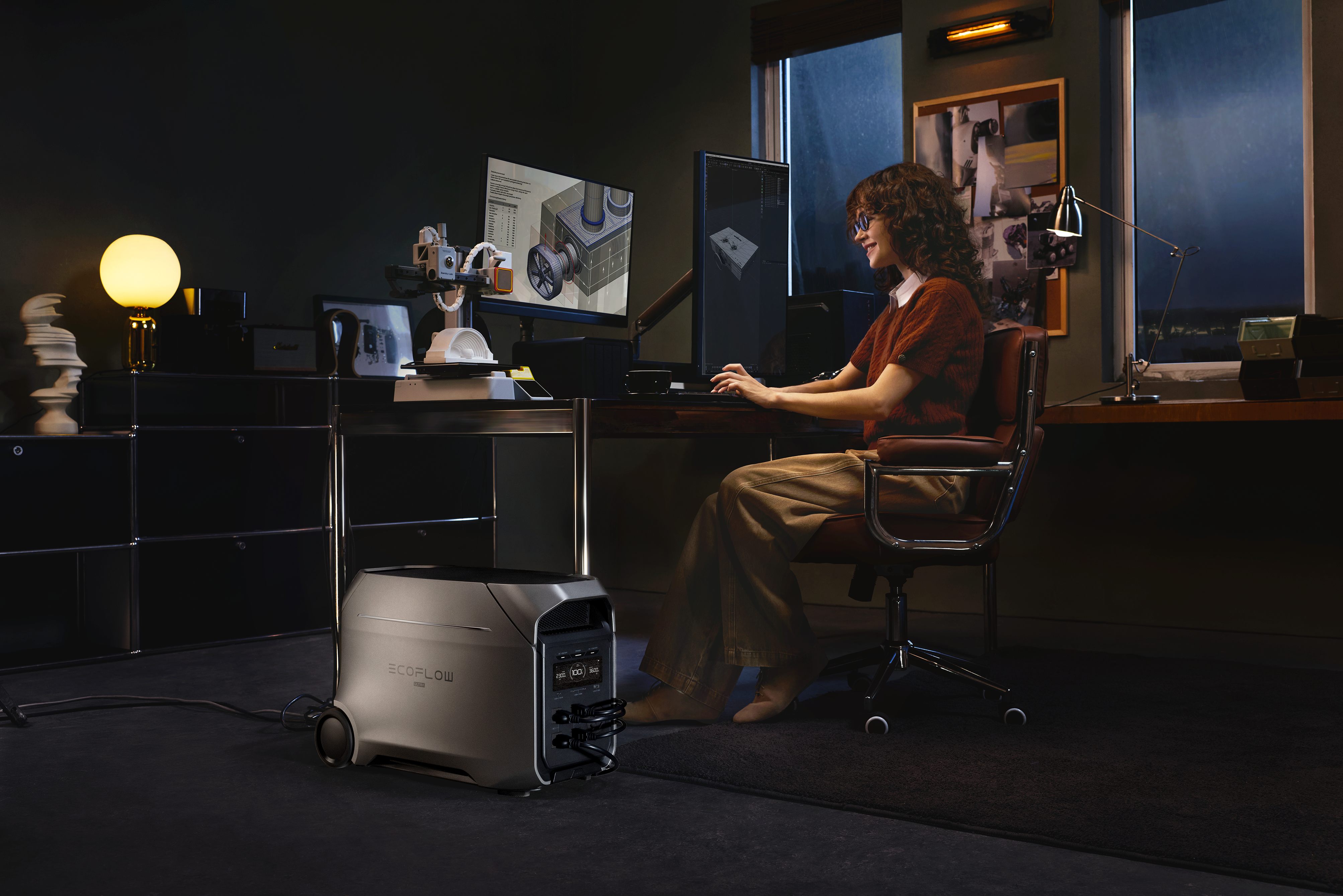Why Your Next Power Station Should Be Modular and Expandable
Things change quickly in tech. It can be risky to buy new technology. Should you spend too much on a big system that you might need someday, or should you buy what you need now and risk it becoming outdated too soon? This all-or-nothing cycle can be broken with modularity, which is a better and more flexible way to do things.
What Does Modular Design Actually Mean
High-Tech Building Blocks
The idea of modular design is to build a complicated system out of several smaller ones. Having technology building blocks is a good analogy. You may build whatever you want with each brick serving a unique purpose, and they all work together seamlessly.
Built for Change
In standard monolithic designs, the whole system is built into one block. This is not at all like that. When one part of a big system breaks or when your needs grow beyond what it can handle, the whole thing often turns into an expensive paperweight. A flexible system, on the other hand, is made to be changed. The idea behind it is that it will change and grow with you. This big difference gives you, the customer, more power, turning a set product into a flexible, long-term answer. You should buy a foundational base instead of a fixed appliance that has an expiration date built in.
The Financial Freedom of a "Pay-as-You-Grow" Philosophy
Lowering the Entry Barrier
The most obvious benefit of a modular approach is that it lets you save money. This "pay-as-you-grow" plan makes sure that your spending fits your current wants and budget. You can buy a core system that solves all of your current problems for a lower price than paying more for features and space that you might use someday. This makes the original barrier to entry for new technologies much lower.
The Home Energy Example
Take setting up a home energy system. To cover peak potential utilization, a conventional solution might require a huge initial expenditure. With modular solar electricity, all you need is a basic inverter and a few solar panels to get started. Simply add more panels to increase generation or more battery modules to enhance storage as your family expands, your energy usage increases, or your budget permits. This principle is the foundation of systems like the DELTA 3 Ultra Plus (3072Wh), which offer the flexibility to begin with a base capacity and extend it as required.


Eliminating Guesswork
By taking things one step at a time, we may avoid wasting money on costly predictions. A single, large purchase will no longer bind you. Rather, you adapt to your changing circumstances by making a succession of smaller investments. This solution is not only more cost-effective in the long run, but it also guarantees that you will never pay for capacity that is not being used. So, it's a very smart investment.
Future-Proofing Your Technology Investments
The Problem with Obsolescence
Technology moves fast. A system that seems powerful today can feel inadequate after one new appliance purchase or a lifestyle shift. Modularity is the best way to future-proof your investments against this relentless pace.
An Evolving Platform
Thanks to its extensible nature, the system can effortlessly accommodate your future self without necessitating a total rebuild. One well-known example from the realm of personal computers is the modular power supply. Power consumption tends to spike whenever a power user enhances their graphics card for gaming or video editing. It could be necessary to purchase an entirely new computer in the case of a non-modular system. It is far more cost-effective and efficient to simply replace the power supply with a higher-wattage unit when using a modular architecture.
This foundational premise is the capacity to grow. By laying the groundwork for an even more robust system down the road, you can rest assured that the initial product you invest in will maintain its worth. Now that it has evolved into a platform, your technology is an asset that will never depreciate.
Tailoring a System to Your Exact Needs
A Custom-Fit Solution
It's not enough to just add more; you need to add different things too. It gives you more control over customization than single-piece methods allow. Your tech should be able to adapt to your specific wants. You can mix and match features on modular parts to make a system that fits your needs exactly.
Versatility in Action
Contemporary energy storage system makes this point very plain. For crucial home backup during power outages, you could begin with a primary unit and one battery module, such as the DELTA 3 Ultra Plus (3072Wh). Consider installing solar panels down the road. With the help of a solar charge controller and additional panels, your backup system may be upgraded to a fully functional solar generator with the help of a modular ecosystem.
For example, you might need power to go camping. It is possible to link a detachable battery to a more compact inverter module. An all-in-one device cannot provide such versatility.
Building Your Own Setup
With modular parts, you can build a setup perfectly tuned for power, portability, or efficiency. You get to make your own solution. This means you get:
No Wasted Money: Just pay for the features you need.
Optimized Performance: Your system is balanced for your needs, like long runtime at home or a light pack for travel.
Flexible: Rearrange the parts to use them for any job, anywhere.
Easier Repairs and Less Electronic Waste
Simplified Troubleshooting
Durability and the total cost of ownership are tightly linked. This is another spot where modular systems really shine. When a part in an integrated, monolithic device fails, the repair is often complex and expensive, frequently leading to the decision to replace the entire unit.
The "Repair-by-Module" Mindset
It is much easier to fix problems in a flexible system. Sometimes, when a feature stops working, it's just one part that's having trouble. To fix the system, all that needs to be done is to find the broken part and replace it. Usually, this process doesn't take long, doesn't need a very skilled expert, and doesn't cost nearly as much as replacing the whole system.
Long-Term Sustainability
This ease of serviceability makes the product last a lot longer and encourages a more environmentally friendly lifestyle. Modularity promotes a "repair the system, don't replace the system" mentality. By limiting waste to only the single broken item, this approach is far better for the environment and your wallet.
A Smarter Path to Ownership
The fact that modularity provides you with options makes it a good choice. Your needs and budget can be accommodated by it. Because you may purchase the essentials right now and then add more later, you can ensure that your money is never wasted. Your technological infrastructure is no longer a static entity; rather, it is a flexible solution that can be modified to comply with the ever-evolving demands of your business.


Frequently Asked Questions
Q1: What Is the Main Benefit of a Modular System?
The fact that it may be extended is the biggest advantage because it protects your investment for the future. Invest wisely in a small system that you may easily outgrow. Rather, you should immediately get a basic system that suits your needs and budget. Whether your needs alter or your budget permits, you may easily adapt your technology by purchasing more pieces, such as extra batteries or new parts. With this "pay-as-you-grow" concept, you can save costs and have more leeway.
Q2: Is a Modular System Cheaper?
It is true that it is almost always less expensive to begin, which makes it simpler to afford new technology. In the long run, it is more cost-effective, despite the fact that the total cost increases as more pieces are added. You are only charged for the capabilities that you really employ, which means that you do not squander money on a large system that you might not require.
Q3: How Does Modularity Affect Repairs?
Repairs are made more easier and the total cost of ownership is reduced due to modularity. If something goes wrong with an all-in-one monolithic system, you might have to replace it or pay a lot to fix it. Because issues with a modular design tend to affect only one module at a time, fixing them becomes much easier. It is quicker, cheaper, and produces significantly less electronic waste to just replace the broken component, such as a single dead battery.
Q4: Can I Combine Modules from Different Brands?
Most of the time, you can't mix and match modules with different names. To work as a closed "ecosystem" where parts can only talk to each other in a certain way, most modular systems are private. One battery module from one company might not work with a power source from a different company because they don't have the same software or hardware connectors. After purchasing a modular system, you generally agree to only upgrade using that brand's environment.
Q5: Does "Modular" Always Mean "Expandable"?
The two ideas usually go together, but not always. Instead of being one solid block, a modular system is made up of separate parts, or modules. There are many benefits to modularity, but the two most important ones are "expandability," which means you can add more capacity, like batteries, and "swappability," which means you can upgrade a computer's power supply without having to buy a new one. It also promotes "customizability," which means you can combine different modules to make a system that works best for you.
Home Solutions
For press requests or interview opportunities, reach out to our media team
media.na@ecoflow.com